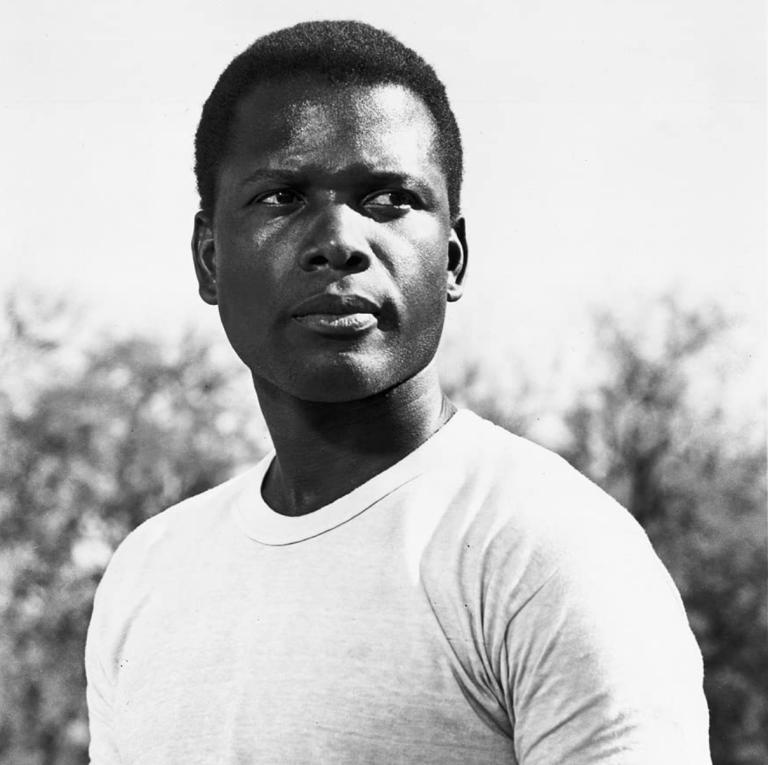
Trailblazing actor Sidney Poitier died yesterday in the Bahamas at the age of 94. Eugene Torchon-Newry, the acting director general of the Ministry of Foreign Affairs, confirmed the news of the Academy Award-winning performer’s death, USA Today is reporting.
Poitier overcame an impoverished upbringing in the Bahamas to rise to the top of his profession during a time when Black actors weren’t receiving prominent leading roles in movies. He lead the fight for diversity and equal rights in Hollywood throughout his career, which began in the early 1950s. Many of his most memorable mainstream film roles throughout his movie career, which lasted into the 1990s, dealt with race, long before other filmmakers decided to follow in his footsteps.
Poitier’s long list of notable accolades for his work includes him becoming the first African American movie star to be nominated for an Oscar for best actor when he was recognized for his work in the adventure drama, The Defiant Ones, in 1958. Six years later he became the first Black man to win an Academy Award for best actor, for his role of Homer Smith in the comedy-drama, Lilies of the Field.
In addition to The Defiant Ones and Lilies of the Field, Poitier also garnered praises for his role of Walter Lee Younger in the 1961 drama, A Raisin in the Sun. The movie, which was adapted from the 1959 play of the same name by Lorraine Hansberry, is notable for showing how an African American family’s future seemed uncertain during the turbulent times of the civil rights movement.
The performer also garnered attention for his portrayal of Dr. John Wade Prentice in the 1967 romantic comedy-drama, Guess Who’s Coming to Dinner. His character served as the love interest of actress Katharine Houghton’s character of Joanna “Joey” Drayton. The film offered a positive depiction of interracial couples during a time when several American states still had laws prohibiting interracial marriage.
Another celebrated 1967 movie Poitier appeared in was the mystery drama, In the Heat of the Night. The film also explored racial tensions as Americans were grappling with social changes brought on by the civil rights movement.
The entertainer played Virgil Tibbs, a Philadelphia detective fighting bigotry in small-town Mississippi, in the movie, which is based on John Ball’s 1965 novel of the same name.
While celebrating his success in his Oscar acceptance speech for Lilies of the Field, Poiter acknowledged the “long journey to this moment” and said he was “indebted to countless numbers of people,” including the members of the Academy. He ended his speech by saying: “All I can say is a very special thank you.”
In 2001, 38 years after Poitier’s groundbreaking Academy Award win, Denzel Washington became the second African American to receive the award for best actor for his role in Training Day. On that same night, Poitier accepted an honorary Oscar for his contributions to the movie industry from Washington.
While presenting Poitier with the honorary Academy Award, Washington said: “Before Sidney, African American actors had to take supporting roles in major studio films that were easy to cut out in certain parts of the country. But you couldn’t cut Sidney Poitier out of a Sidney Poitier picture. He was the reason a movie got made: the first solo, above-the-title African American movie star.”
Poitier later said in an interview with the Academy that Washington’s “win represented progress, it represented the dimensionalizing of the film industry. It was an example of the persistence and effort and determination of young people of color. … It was a spectacular, spectacular evening.”
President Barack Obama also awarded Poitier the Presidential Medal of Freedom in 2009. “It’s been said the Sidney Poitier does not make movies, he makes milestones – milestones of artistic excellence, milestones of America’s progress,” the former commander-in-chief, who has also broken racial barriers in his career, said before bestowing the actor with the nation’s highest civilian honor.
“Poitier not only entertained, but enlightened, shifting attitudes, broadening hearts, revealing the power of the silver screen to bring us closer together,” Obama continued. “Poitier once called his driving passion to make himself a better person.
He did. And he made us all a little bit better along the way.”
Poitier is survived by his six daughters, including Beverly, Pamela, Sherri and Gina, whom he had with his first wife, Juanita Hardy. The actor also shared two more daughters, Anika and Sydney, with his second wife, former actress Joanna Shimkus, whom he married in 1976.
In addition to his six daughters and Shimkus, the actor also had eight grandchildren and three great-grandchildren.

